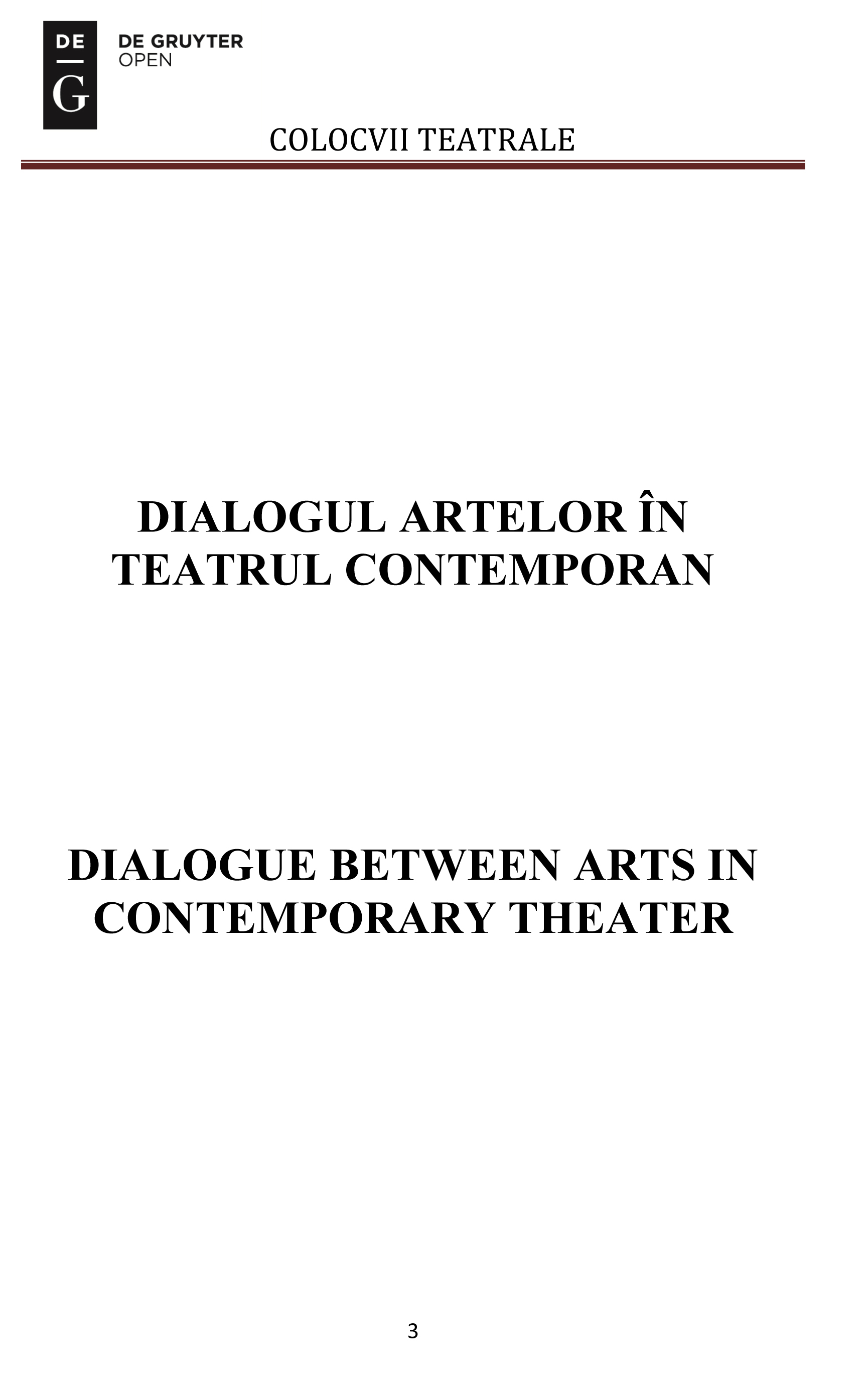Theatre, in Ionescu’s Vision: “The Eternal Need for Miracle and Horror”
Theatre, in Ionescu’s Vision: “The Eternal Need for Miracle and Horror”
Author(s): Mirabela MoroşanuSubject(s): Language and Literature Studies, Fine Arts / Performing Arts
Published by: Editura ARTES
Keywords: phenomenological modernity; explanatory structures; metaphysical sense; existential assuming; aesthetics; critical spirit; un-authentic; Adamic; impossible duality; archetypal; changeless; credible
Summary/Abstract: A subject the phenomenological modernity of which imposes itself, regardless of the time of the debate and the critic-literary orientation of the messmate, which burned in profile magazines pages and specialist meetings, and the conclusions of which are still expected, is represented by the dilemma: Eugen Ionescu or Eugene Ionesco? The Romanian by birth (and formation, some say) or Frenchman by adoption?As it was already used to, according to the formula that opposites are attracted to cancel each other, Ionescu refused widely known theories about the purpose of theatre, annihilated them and replaced them with his own ideal concept of what theatre means to the public and, especially, what is the purpose of its mission. Theatre has, like any other art, a mission of knoweledge. You don’t silly around to discover, but deepening, separating, purifying realities. (...) Theatre is a presence, Ionescu says.
Journal: Colocvii teatrale
- Issue Year: 2017
- Issue No: 23
- Page Range: 289-298
- Page Count: 10
- Language: English

